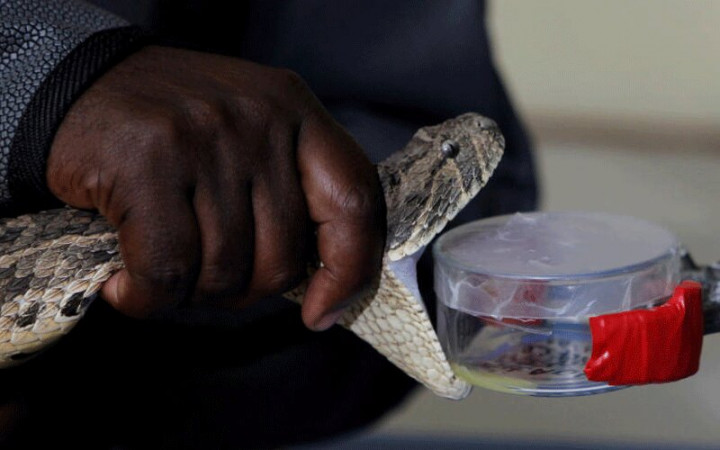Kenyan entrepreneurs told to embrace snake farming
By Wahinya.Henry, August 24, 2022Kenyan entrepreneurs should leverage the sensational snake venom campaign propagated by Roots Party presidential candidate George Wajackoyah during the just concluded General-Election, researchers say. Wajackoyah spiced up election campaigns promising to allow trade in snakes and hyenas testicles, to boost the country’s revenue streams, if elected.
Although various lobby groups termed the proposal in the Party manifesto as retrogressive, a section of the academia are now warning against dismissing the such ideas offhand. With snake bite being a neglected public health issue in many tropical and sub-tropical countries, the demand for anti-venoms is increasing in many countries including Kenya, says the World Health Organisation on its website.
The organisation says about 5.4 million snake bites occur each year, resulting in 1.8 to 2.7 million cases of envenomings (poisoning from snake bites).
“There are between 81,410 and 137,880 deaths and around three times as many amputations and other permanent disabilities each year,” WHO adds.
Most of these occur in Africa, Asia and Latin America, with an estimated 435,000 to 580,000 snake bites that take place happening and need treatment in Africa alone
Economic benefits
Prof Joseph Gikunju from Jomo Kenyatta University of Agriculture and Technology (JKUAT) says in findings on the economic benefits of snake venom and anti-venom (SVA) that, Wajackoyah’s campaign should not be downplayed owing to increasing demand for anti-venom drugs.
In the research on Snake Venom and Anti-venom (SVA) and Business Opportunities, he spearheaded the research and presented findings during a webinar on how abundance of snake bites portends a huge market potential. With increasing climate change, more snakes are rattled with the changing weather patterns which has increased their migration patterns taking them closer to the people. The research estimates that on average, snake milkers make around Sh250,000 ($2,500) per month, but snake venom is an expensive market. One gramme of certain types of snake venom can sell for $2,000.
Purchasing these anti-venoms costs approximately Sh13,500 (about $160) per vial, and depending on the species of snake involved, a patient may need 5-10 vials of antivenom as an initial dose, according to the research.
Prof Gikunju says while presenting the research findings on webinar that focus should be on development of snake venom and anti-venom relevant bodies should speed up research into it.
Snake bites are a silent public health problem in Kenya with 5.4 million cases reported annually. Eastern, Northern and Coastal regions are some of the areas that are heavily plagued by the infestation.
Black Mamba, Green Mamba, Puff Adder and Boomslang are some of the venomous snakes found in Kenya. “There are many types of venoms, snake venom, bee venom, scorpion venom and spider venom. I hope to focus on snake venom and anti-venom and explore its potential in drug development and look at the business opportunities available” Gikunju declared. Snake venom is touted to be the next lucrative venture, as the topic has lately gained traction in political campaigns. Gikunju confirmed this by saying, the market was ripe for snakes and their products.
Drug development
He says countries like China, Burma and the US are using snakes as a source of food and utilise their skins to produce shoes and bags. On the potential of snakes in drug development, Prof Gikunju attests that snake venom is a versatile product with the capability of making anti-venoms, skin products, high blood pressure drugs, painkillers and oils for gout and arthritis among other lifesaving drugs.
“To effectively treat the high cases of snake bites in the country, anti-venoms from snakes have proven to be effective. We can also use the venom to produce massage oil that helps in case of gout and arthritis,” he said.
The Kenya Snakebite Research and Intervention Centre has been conducting research on venomous snakes in Baringo with a view to tackling the shortage of anti-venoms in the country.
